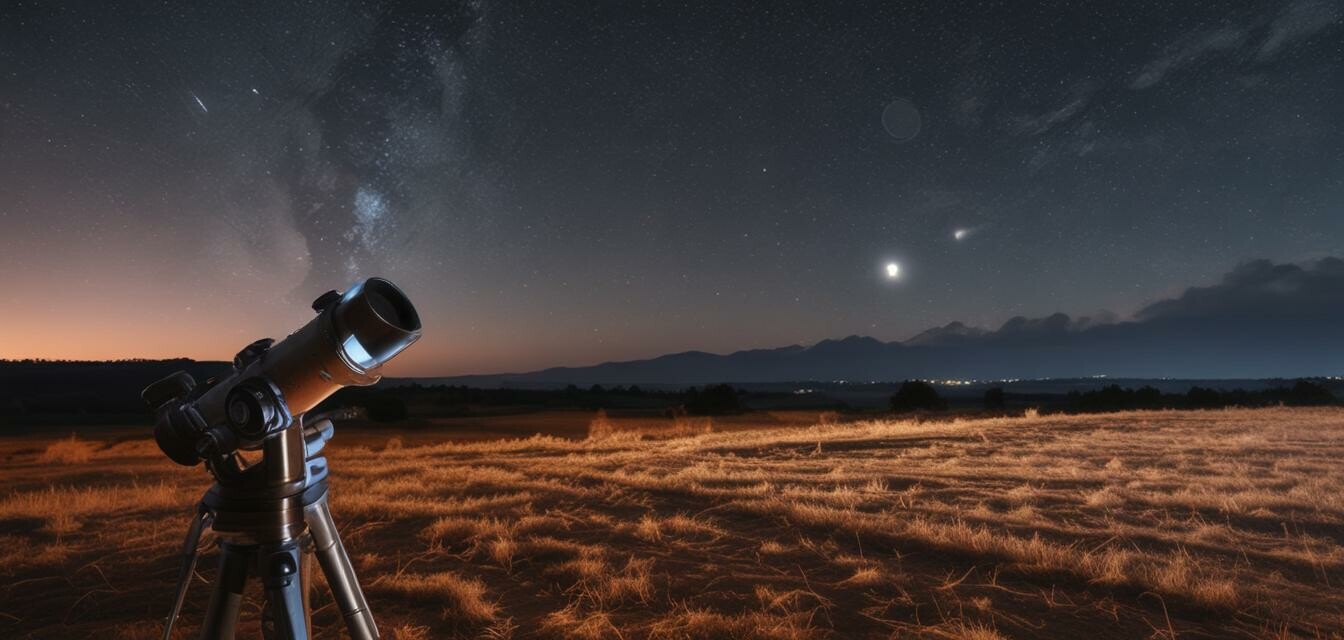
Best Advanced Telescopes for Planet Exploration
Key Takeaways
- The right telescope can enhance your planetary viewing experience significantly.
- Advanced telescopes offer features like higher magnification, better optical quality, and tracking systems.
- Choosing the right type, like refractor or catadioptric, depends on your observation goals.
- Consider important specifications such as aperture, mount type, and ease of use.
- Investing in quality accessories can optimize your viewing experience.
Exploring the cosmos has never been more thrilling, especially with the right equipment. For serious astronomers who want to get an up-close view of planets, choosing the best advanced telescopes is crucial. In this article, we'll guide you through key features to look for, comparisons of types, and the crucial specifications that will enhance your planetary exploration.
Understanding telescope types
The world of telescopes can be complex, especially when it comes to different types that cater to varied observational needs. Here’s a brief overview:
| Type | Description | Key Features |
|---|---|---|
| Refractor Telescopes | Use lenses to gather light and provide clear images. | Excellent for planetary detail, minimal maintenance. |
| Reflector Telescopes | Use mirrors for light collection and viewing. | Great for deep-sky objects, large aperture options. |
| Catadioptric Telescopes | Combines lenses and mirrors for versatility. | Portable, effective for various types of astronomy. |
| Digital Telescopes | Incorporate sensors to display images on devices. | User-friendly, good for sharing observations. |
Features to consider
When selecting the best advanced telescopes for planet exploration, keep these features in mind:
- Aperture: The diameter of the main optical component; larger apertures allow for more light gathering, crucial for clear planetary details.
- Magnification: Ability to zoom in on celestial objects; higher magnification can reveal more details, but clarity is key.
- Mount Type: Stability and tracking options; equatorial mounts are beneficial for tracking celestial movements.
- Optical Quality: Look for telescopes made with high-quality glass to avoid distortion.
- Ease of Use: Consider how beginner-friendly the telescope is, especially when setting it up or adjusting it for optimal viewing.
Essential accessories for enhancement
Accessories are important for making the most of your telescope experience. Here are some worth considering:
- Quality eyepieces: Different eyepieces can change the viewing experience significantly; consider a range of focal lengths.
- Barlow lenses: Lets you double the magnification of your eyepieces.
- Filters: Planetary filters can enhance contrast and detail, especially on specific planets.
- Star charts and apps: Tools and resources that assist in locating celestial bodies effectively.
Pros and Cons of advanced telescopes
Pros
- Enhanced detail and clarity for planetary views.
- Wide range of features and capabilities for serious stargazers.
- Durability and long-term investment for astronomy enthusiasts.
Cons
- Higher costs can be a barrier for beginners.
- Can be cumbersome to transport due to size and weight.
- Setup may require extensive knowledge and experience.
Conclusion
In conclusion, when it comes to selecting the best advanced telescopes for planetary exploration, an informed decision will elevate your stargazing experience. By understanding the types, features, and necessary accessories, you can ensure that you invest in a product that meets your specific needs. Don't forget to explore our extensive resources in the Buying Guides section for in-depth comparisons, tips, and more to make your decision easier!
Further Reading
For more insights and guides on choosing the right telescope, check out these links:
- Refractor Telescopes - Explore your options for clarity and detail.
- Catadioptric Telescopes - Versatile choices for various types of astronomy.
- Telescope Accessories - Essential equipment to enhance your viewing experience.
- News and Trends - Stay updated on the latest telescope technologies.
- Tips and Tricks - Helpful advice for getting the most from your telescope.